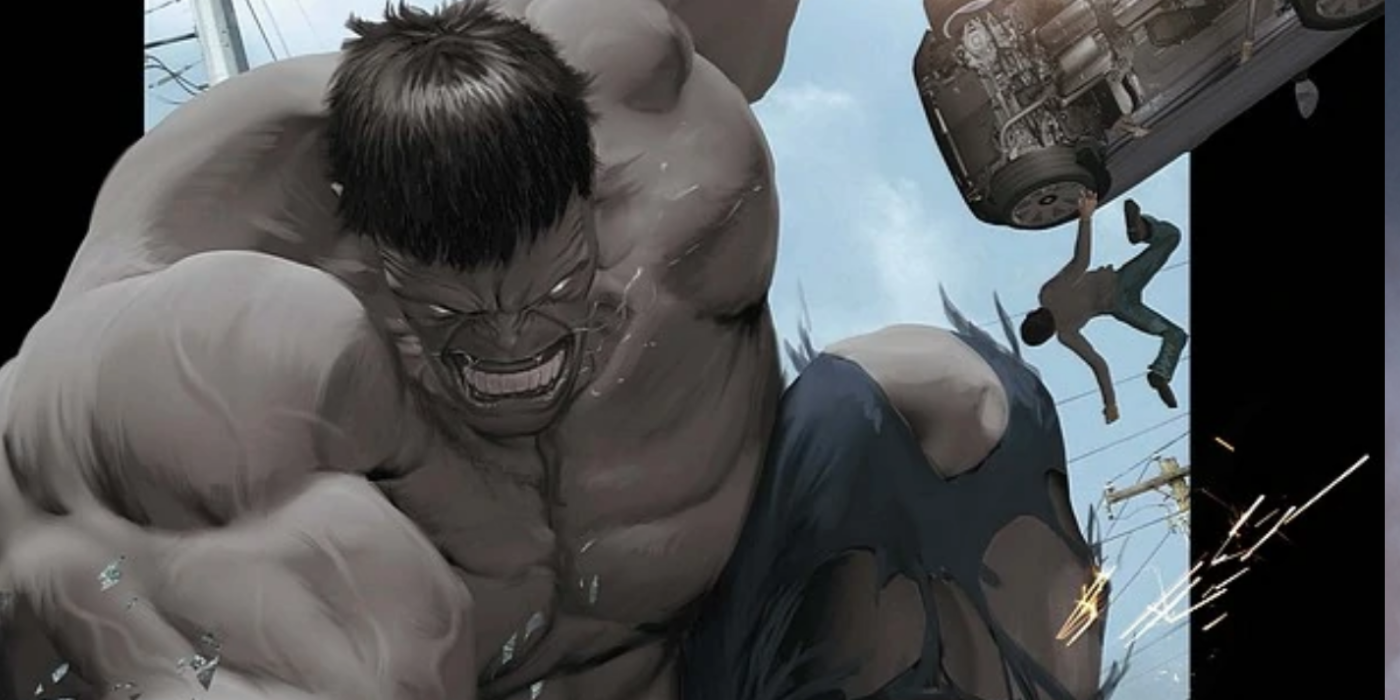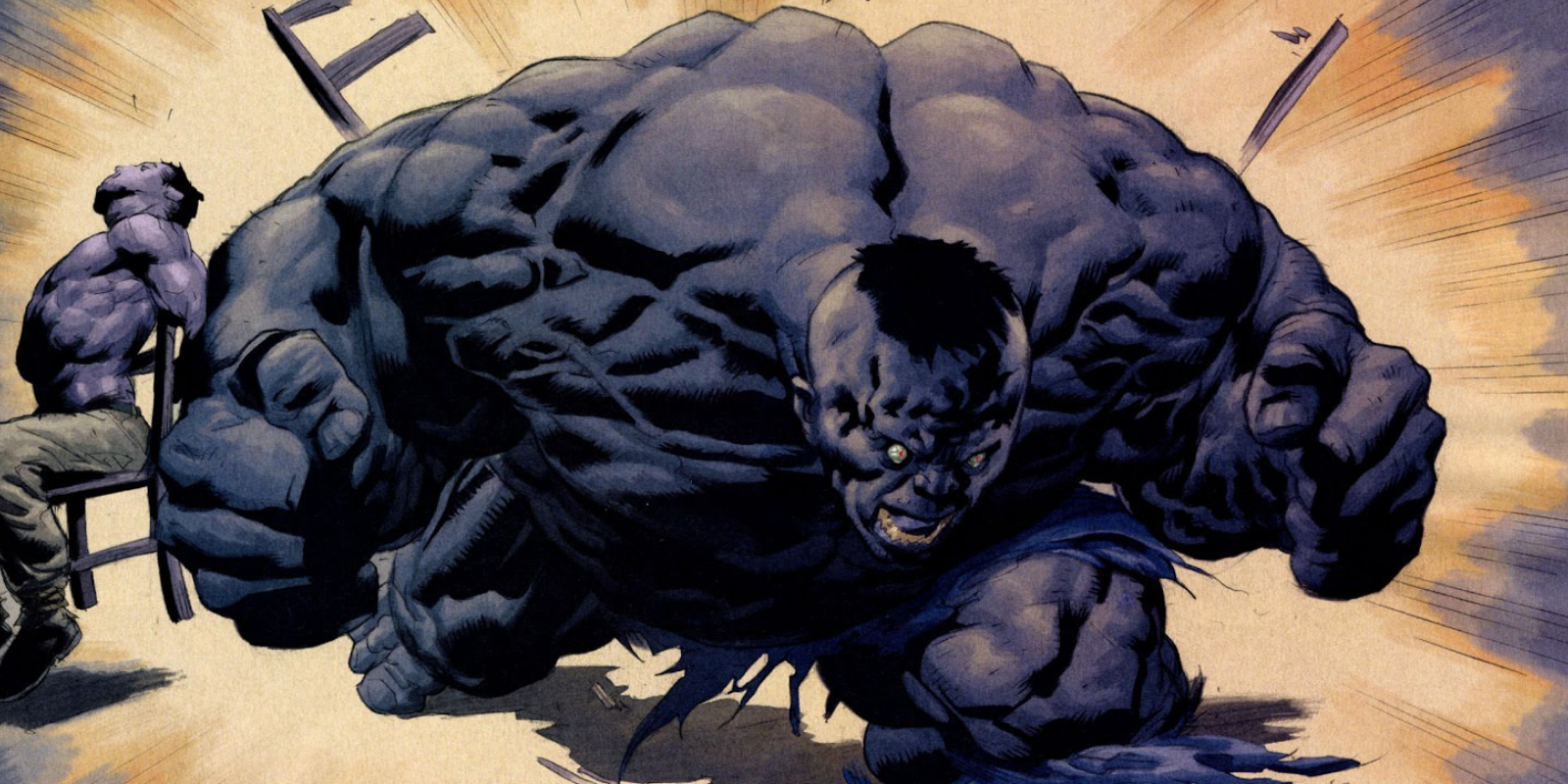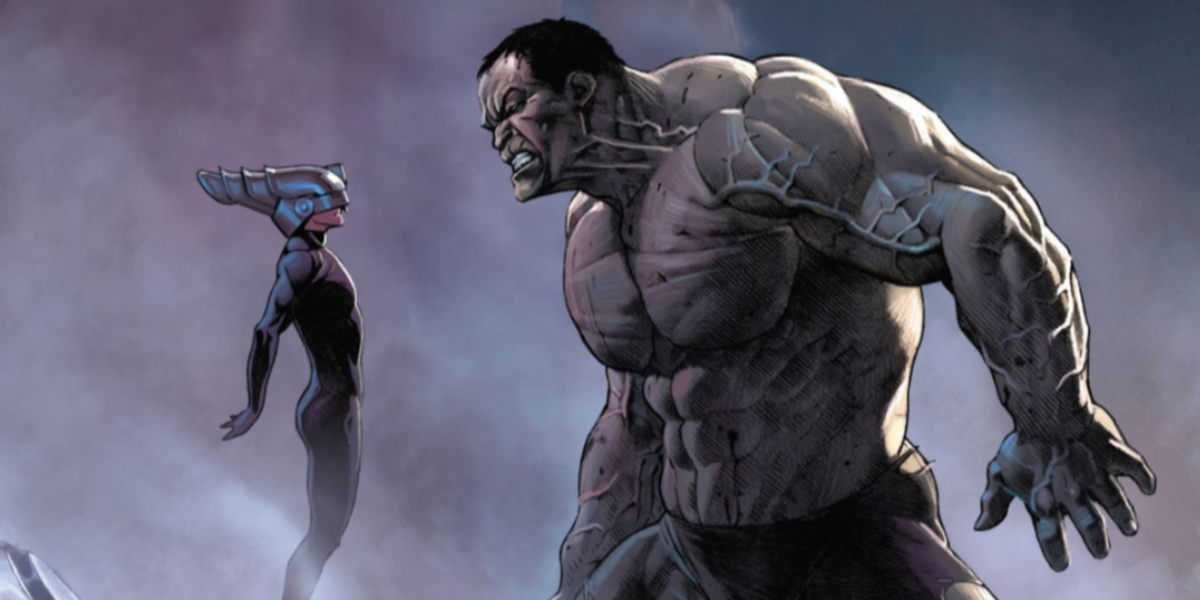The Ultimate Marvel line reimagined many classic Marvel characters for the modern day and quickly established a reputation for being darker and more grounded than their more mythical counterparts. Perhaps most memorable of all was the Ultimate Hulk, where the behemoth rage-monster lost much of what made him a sympathetic character and instead embodied an unrestrained cannibalistic monster rampaging his way through the 1610 universe. Given how memorable he was it's a wonder to look back and realize he never had his own solo series, and at the end of the day it's a shame: Ultimate Hulk was an amazing character, and he deserved a chance in the spotlight.
It was in the pages of Ultimates that the bulk of this Hulk's story unfolded. There it was established that there were some key differences between this character and his 616 counterpart. This Bruce Banner worked toward efforts to recreate the Super Soldier Serum rather than on experiments with gamma radiation. Turning himself into the Hulk came not as the result of an accident, but from deliberately injecting himself with his own formula. But perhaps the biggest difference was not in the plot beats, but in the character himself.
Rather than being a sympathetic underdog, Ultimate Bruce Banner had a less sympathetic but nevertheless more three-dimensional character. He was insecure, his Hulk experiments truly motivated out of that insecurity more than anything, and his genius often went unappreciated. As the Ultimates formed into a superhero team he was elbowed to the sideline and became the Hulk from a need to feel special. Rather than becoming a beloved super celebrity like the rest he turned into the monster that united them and caused the death of hundreds of people. That guilt and insecurity formed a fascinating motivating factor in the character's story as he strove to master his monstrous impulses.
What's notable is that much of that story played out in other titles primarily centered on other characters. Oddly enough, the closest he had to a solo title was the one-shot Ultimate Hulk Annual, yet the story itself focused primarily on the character Zarda and her own struggle to adjust to the 1610 reality. In Ultimates 2 Banner progressed into being able to trigger his transformations, Ultimate Wolverine vs. Hulk showed Banner gaining some measure of control over them, and by Ultimate Comics: The Ultimates he had almost fully mastered his deadly dual personality.
What was truly unique was that in mastering himself, this version of the Hulk came to embrace his role as a villain. Eventually teaming up with the Maker in opposition to the Ultimates, a genuinely interesting character development unfolded in which the anti-hero gives up worrying about what others think of him and accepts the vilification that has plagued him for years. Even thereafter, as Banner picked up the pieces of his life, his character continued to be interesting and markedly different from his mainstream counterpart.
The meek but insecure vegetarian who transformed into a powerful people-eater was a novel take on a familiar concept and it only grew more interesting as various writers explored it. As Marvel teases more and more that there could be a return to the Ultimate universe, this development presents an exciting opportunity to make up for the missteps of the past. Giving Ultimate Hulk his own solo title would be the perfect way to make up for those past oversights. If there's one thing the character proved it's that he doesn't just smash buildings -- he smashes expectations.



